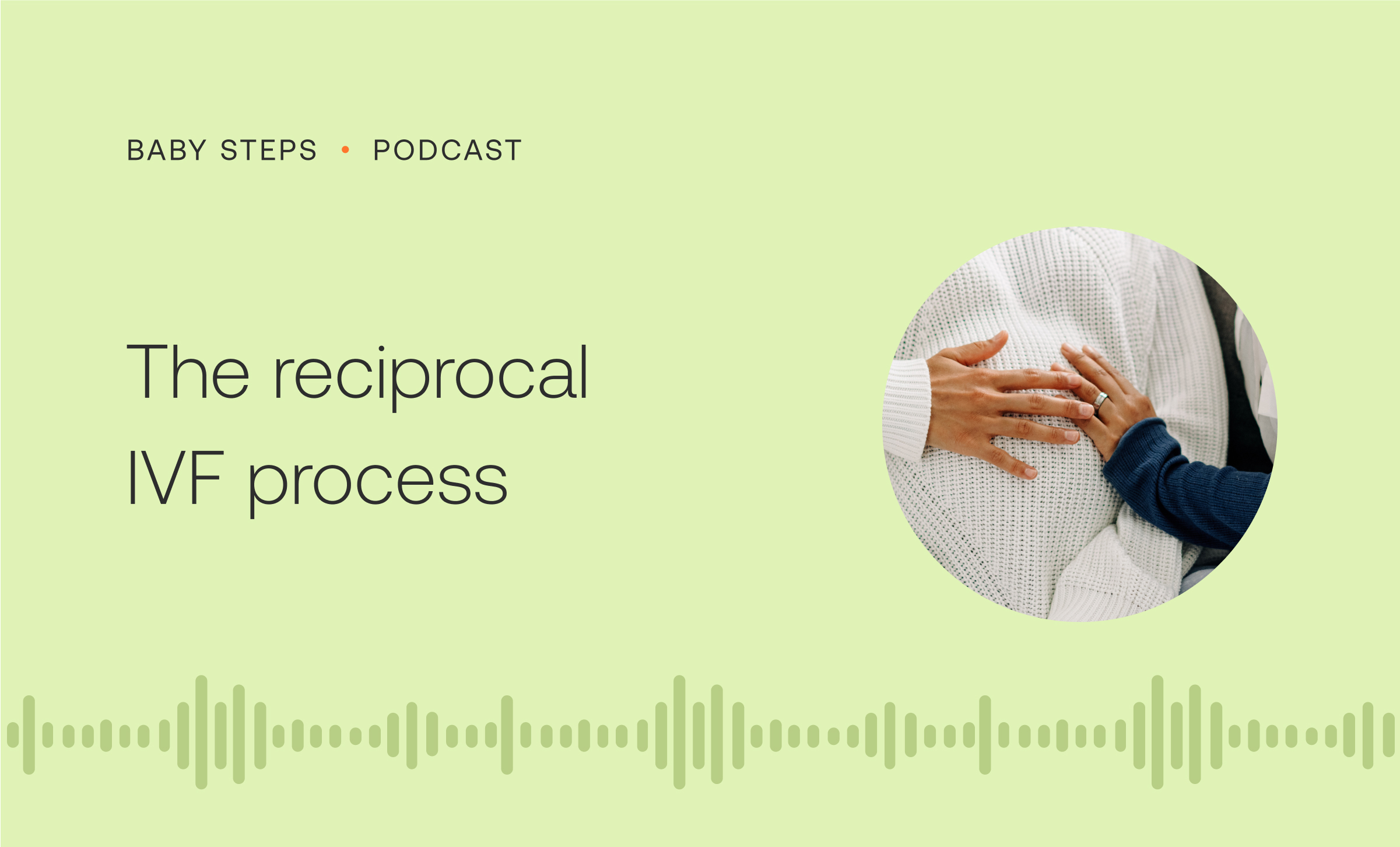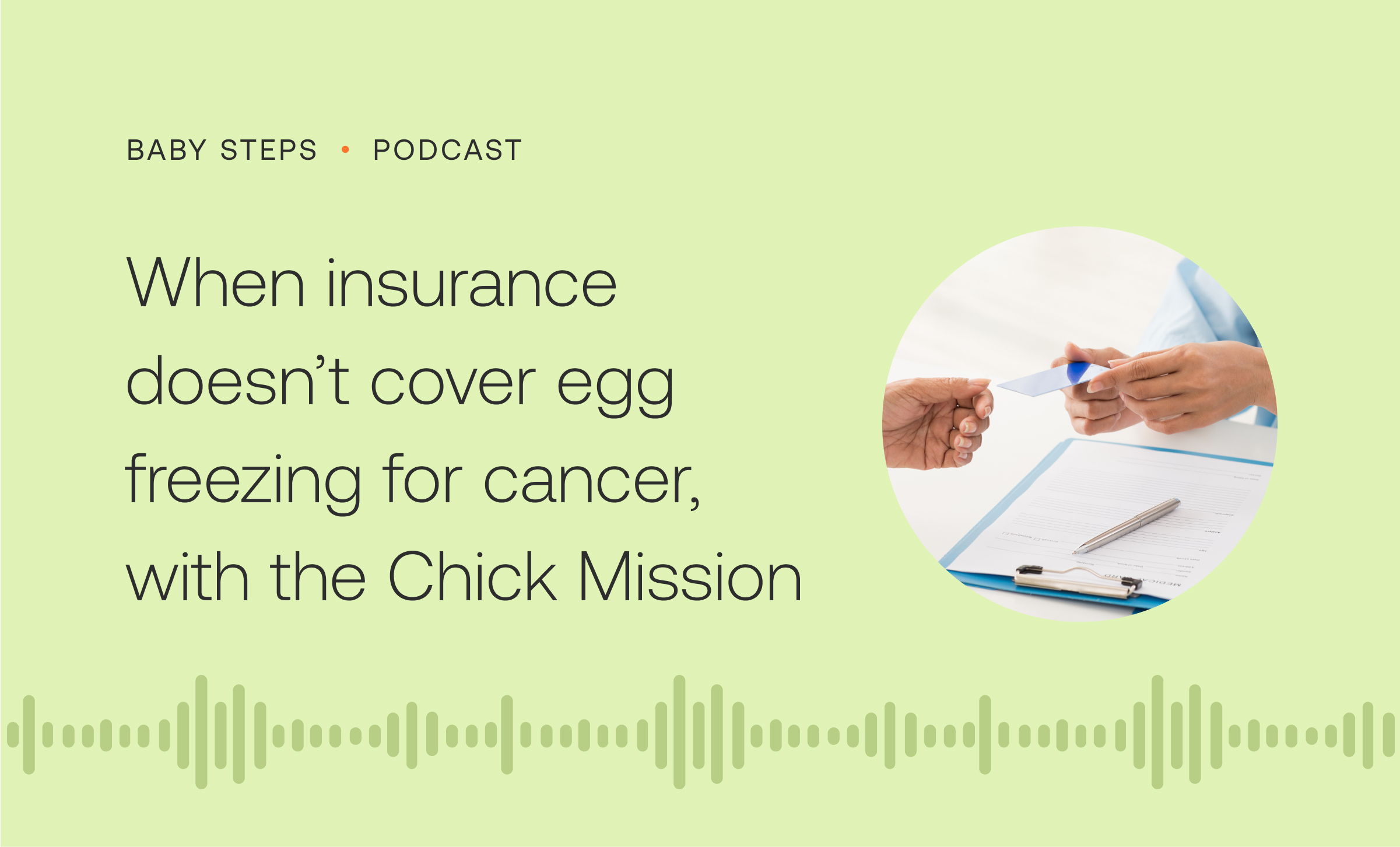Every decade is marked by different milestones and transitions. Your 40s may be focused on integrating new roles and responsibilities as you continue to grow personally and professionally. This may look like navigating promotions, new jobs, volunteer opportunities, and other identities such as being a parent, caregiver, and more. This may also include navigating symptoms related to age-related hormonal changes, such as menopause. And while age-related changes in fertility are inevitable, many people still grow their families in their 40s through pregnancy, donor-assisted reproduction, or adoption.
Age-related hormone changes
In their 40s, most people experience progressive changes to their reproductive hormones. Fertility is governed by some of these hormones, and as these hormones fluctuate, people may begin to experience symptoms that impact overall health and fertility.
The decline of estrogen as you age
As the supply of eggs decline and levels of estrogen and progesterone decrease, a transition known as perimenopause, the period leading up to menopause, begins. The average age of menopause — the permanent end of menstrual cycles — is 51, but the symptoms of perimenopause can begin as early as a decade prior.
Symptoms of perimenopause
- Menstrual changes
- Hot flashes
- Genital dryness
- Difficulty sleeping
- Mood swings
- Memory lapses
How testosterone changes in your 40s
Testosterone is another hormone that changes with age. Testosterone is responsible for many essential functions, including bone and muscle development, emotional regulation, red blood cell production, sex drive, and sperm production. Production of testosterone in the testes increases dramatically during puberty but gradually decreases with age, with levels declining on average about 1% per year after age 30. In some cases, testosterone levels can drop to a point that negatively affects a person’s health and/or quality of life. This medical condition is known as low testosterone (low testosterone). Unlike perimenopause and menopause, which is an inevitable process of aging of the ovaries, not everyone with testes will experience low testosterone. Still, one study found that 40% of men older than 45 can be impacted by low testosterone.
Common low testosterone symptoms
- Fatigue
- Low energy
- Insomnia
- Depressed mood
- Reduced sex drive
- Decreased sperm production
Many low testosterone symptoms can be associated with other conditions, such as diabetes and heart disease, so it’s challenging to diagnose. Over-the-counter testosterone supplements have also become increasingly popular for improving low testosterone symptoms despite limited data to confirm their effectiveness. Because of this, it’s important to speak with a healthcare provider who can complete a full evaluation, including a health history, physical exam, and blood work, to properly diagnose low testosterone and provide appropriate options to manage symptoms.
Perimenopause, menopause, and low testosterone symptoms can be particularly disruptive in day-to-day life, impacting both physical and mental health. Identifying symptoms early, speaking with your healthcare provider, and finding the right treatment and support can be helpful in mitigating some of these challenges.
Chances of getting pregnant in your 40s
While individuals may experience changes in hormones and menstrual cycles in their 40s, there’s still a chance to get pregnant, even if cycles are no longer consistent and regular. By age 40, an individual has less than a 5% chance of getting pregnant on a given cycle, but while the odds of spontaneous pregnancy are relatively low, pregnancy is still possible.
If an individual is not interested in getting pregnant, they may continue using effective contraceptives until menopause occurs. Hormonal contraceptives are generally safe during perimenopause, but it's helpful to speak with a healthcare provider about options. Options include non-hormonal contraception like condoms or other longer-acting methods.
An individual is also advised to consult with their healthcare provider if they’re interested in getting pregnant in their 40s. Partnering with a fertility specialist early in a fertility journey is helpful in understanding treatment options. Research shows that more than 100,000 people over 40 in the U.S. give birth each year, around 5,000 of whom undergo in vitro fertilization (IVF) to get pregnant.
Sperm health in the 40s
Sperm production gradually declines with age. Aging also negatively impacts the quality of sperm, affecting concentration (the number of sperm in a sample), motility (the movement of sperm), and morphology (the shape). A lower count and lower quality of sperm can make it more difficult for sperm to fertilize an egg as a person ages. If an individual is interested in starting or growing their family, a healthcare provider can help support the individual to achieve their fertility goals and may recommend semen analysis to better understand their sperm health, so they can determine if fertility treatments like intrauterine insemination (IUI) or IVF may be needed.
Other family-forming options
While some individuals may be able to get pregnant through intercourse in their 40s, many may face some challenges. This could bring up complicated feelings as some may grieve the loss of the ability to either carry a pregnancy or share a genetic connection with a child. However, if parenthood is the goal, there are other different paths to parenthood. Some family-forming options include:
- Donor-assisted reproduction: An intended parent uses donated eggs, sperm, or embryos
- Gestational surrogacy: An intended parent or parents works with a person who carries a pregnancy for them
- Adoption: A prospective parent or parents legally take in and raise a child that’s not their own, which can be done in a number of different ways (e.g. domestic adoption or intercountry adoption)
Seeking support from a mental health professional with expertise in family forming may be helpful for those making complex decisions about their family-forming options.
How Carrot can help
Carrot provides personalized support wherever you are on your journey. Whether you’re interested in growing your family or have completed your family-forming journey, we have resources to support you.
- Expert-produced articles: Explore our library of articles on topics like managing menopause and low testosterone symptoms
- Vetted global network of providers: Search for high-quality support from adoption agencies, fertility clinics, and more near you
- Unlimited expert chats: Schedule virtual chats with experts like reproductive endocrinologists, urologists, and mental health professionals who can answer your questions and provide guidance
If you’re a Carrot member, sign in to your Carrot account and explore your resources.













